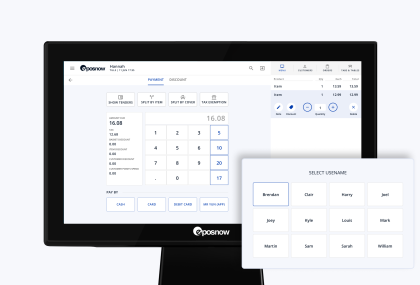How Bad Reviews Affect Your Business
With all the work that goes into building a business, the hours spent designing every moment of a customer’s experience from entry to exit, it can be frustrating to have your business criticised publicly in customer reviews.
Worse still, bad reviews can damage your business in a number of different ways, all of which result in the loss of revenue. Finding out what these are and how you can protect against these consequences while preventing further negative publicity, can help get you back on track.
Why bad business reviews matter
When different customers have a negative experience with your business, they will react in different ways. Some will simply not return again, and these cause the business to lose repeat customers and the revenue they bring. This in itself is regrettable, but in each case is likely to mean just one customer lost.
Those customers that write their experience in a 1 or 2 star review cause a great deal more damage. They discourage many more potential customers by informing them about these experiences and influencing purchasing decisions.
Bright Local conducted a survey about the influence and impact of reviews on consumers and discovered that 77% of people see reviews when browsing for local businesses (this is a 2021 increase from 60% the previous year)[1]. In addition to this, only 3% of respondents said they would use a business with a 2* rating or below.
This demonstrates the power of customer reviews over consumer decisions. Respondents also consider it important that businesses engage with reviews. They are looking further back through review history and are more sceptical around fake reviews.
Word of mouth impact
However, the impact of negative reviews goes beyond putting off potential customers. Consumers read review sites, but they also talk, and those that have negative experiences will discourage those they speak to from using your business.
Word of mouth is a key part of consumer research. Friends, family and acquaintances can all put people off trading at an establishment, and if any one of them sees a bad review, they are likely to relay that to anyone considering trading with you. This makes negative online reviews hugely powerful.
Search Engine priorities
Naturally, any business wants to be the first result if someone searches for a product or service they provide, especially if they’re local. However, optimising your business’s position in Google’s search engine involves getting a lot of different things right.
One of those is the quality and quantity of your reviews; this means getting a good number of positive reviews on a regular basis. However, bad Google reviews that lower your rating will often use words that Google’s engine will have negative associations with. This will lower your rankings and cause you to appear lower down in a search.
So if two businesses have a hundred reviews each, but ten of yours have 1* ratings with words like “rubbish”, “bad service” and “never again”, your business will likely appear below the competitor even if you have the same overall score.
Search engines want to recommend the best businesses, and use negative reviews to avoid promoting businesses that let their users down. So bad reviews can lead to less brand awareness, fewer new customers, losing contact with existing customers, and less effective marketing, all because of bad reviews.
No tool is as essential to your business as your POS (electronic point of sale). Your POS can accumulate more business data than any other to help you make the right decisions, and an Epos Now system can help you run a modern, omnichannel operation that can ensure every sale that can be made, will be.
- Streamline your sales process with fantastic transaction software and an all-in-one POS and card processing kit
- Manage cross-channel products and inventory, and view reports on-site or off using cloud technology
- Increase security and simplify sales for new starters with staff access controls and multiple access levels for a system that suits your needs

Managing how much a bad review can hurt your business
Naturally, improving customer service and honing the quality of your product are the first preventative measures you can take to avoid getting bad reviews in the first place. This may mean boosting the morale of your staff so that complaints about your team don’t arise, or making more durable or enjoyable products so that no consumer runs into issues shortly after purchase.
However, having conversations with customers about their experience and making this part of your service can also be a preventative measure. Encouraging your team to earn positive reviews will help boost your review rating and bury past negative reviews. This also serves a second purpose.
Often, when asked to leave a review, a disgruntled customer will raise any issues they had, providing your team with an opportunity to repair the relationship.

Allowing team leaders or even all staff to provide certain reparative discounts or free services can ensure that a swift gesture is made as a first step. This demonstrates that your business cares about negative experiences and wishes to invest in reparations.
Once a bad review is posted, though, not all is lost. Many customers will edit or remove a bad review if the business reaches out afterwards.
Respond to all reviews, good and bad
The Bright Locals study (link above) explains that over half of all people would be unlikely to use a business that doesn’t respond to reviews. This shows that responding to negative reviews is an essential part of online engagement. Apologising, offering explanations for what happened, and attempting to make further contact can all help.
Google My Business, while providing business owners with basic needs like appearing on Google Maps, also allows business owners to respond to reviews. Of course, some customers may be unresponsive, in which case, providing other viewers with an explanation of what happened in their particular case provides a useful counter-narrative.
It is important to write these explanations in the form of an apologetic explanation despite any frustration you may feel. However, it is crucial to remember you are not only writing for the unhappy customer (who you are unlikely to see again), but also to all future and existing customers who are forming judgments on your response.
Improve your service with an easy-to-use EPOS
With a 4.5* rating on Trustpilot, Epos Now customers can rely on their systems for dependable, flexible EPOS solutions[2]. With hundreds of partnered apps that allow bespoke setups for all business needs, it’s easy to find the perfect fit.
- Create bespoke transaction setups on secure, speedy software to shave time off the sales process
- Choose from hundreds of apps and integrable partner programs to run accounting, marketing and other back-of-house functions in a way that suits you
- Access reports and manage prices and inventory on-site or off, night or day, through cloud technology
- Purchase all the retail or hospitality hardware and software you need and receive expert advice and support around the clock to get the best out of your business
To find out more about Epos Now solutions, submit your details below and speak to a member of our expert team.
Epos Now solutions are the trusted foundation of over 40,000 businesses all over the world!
